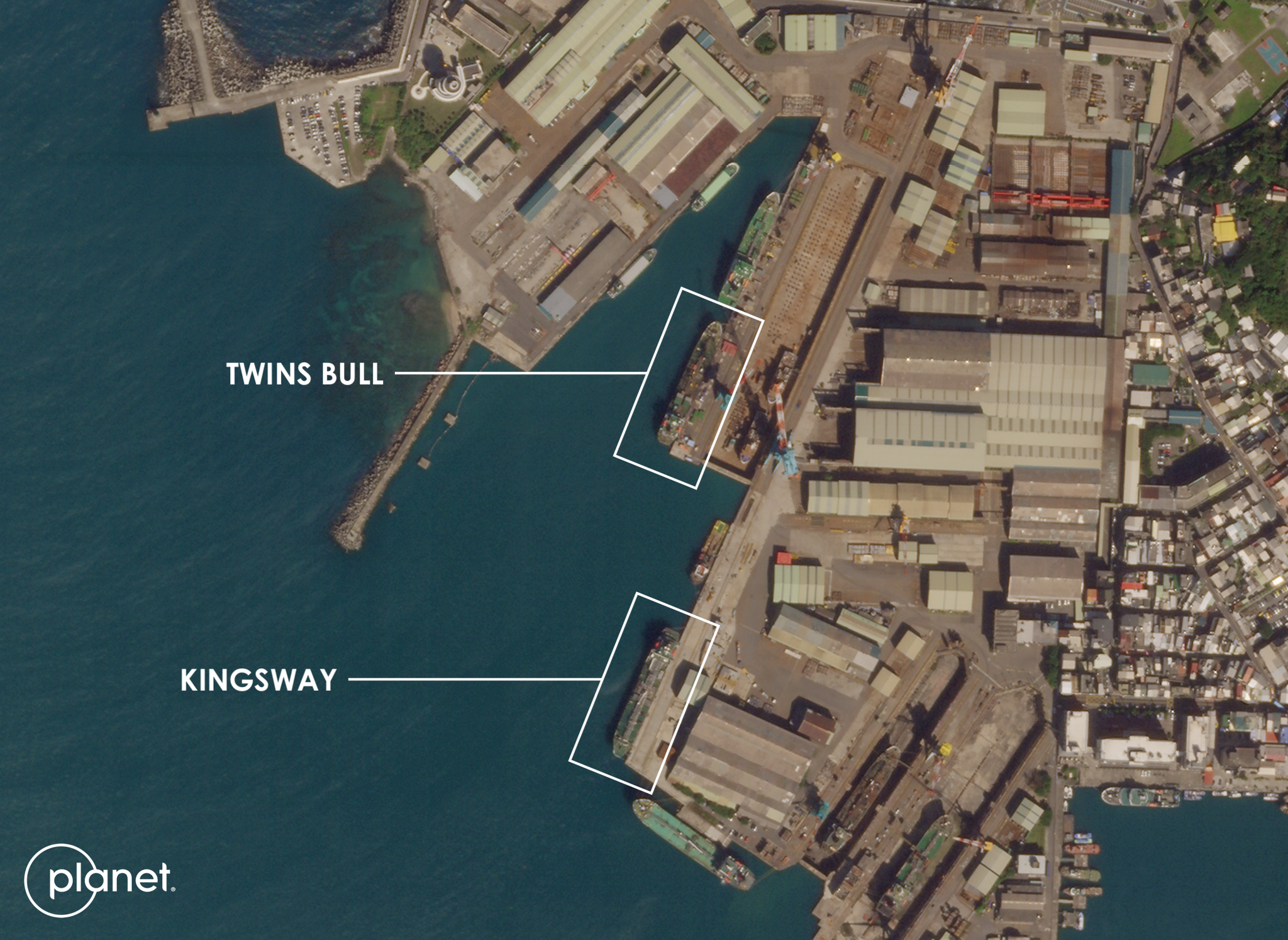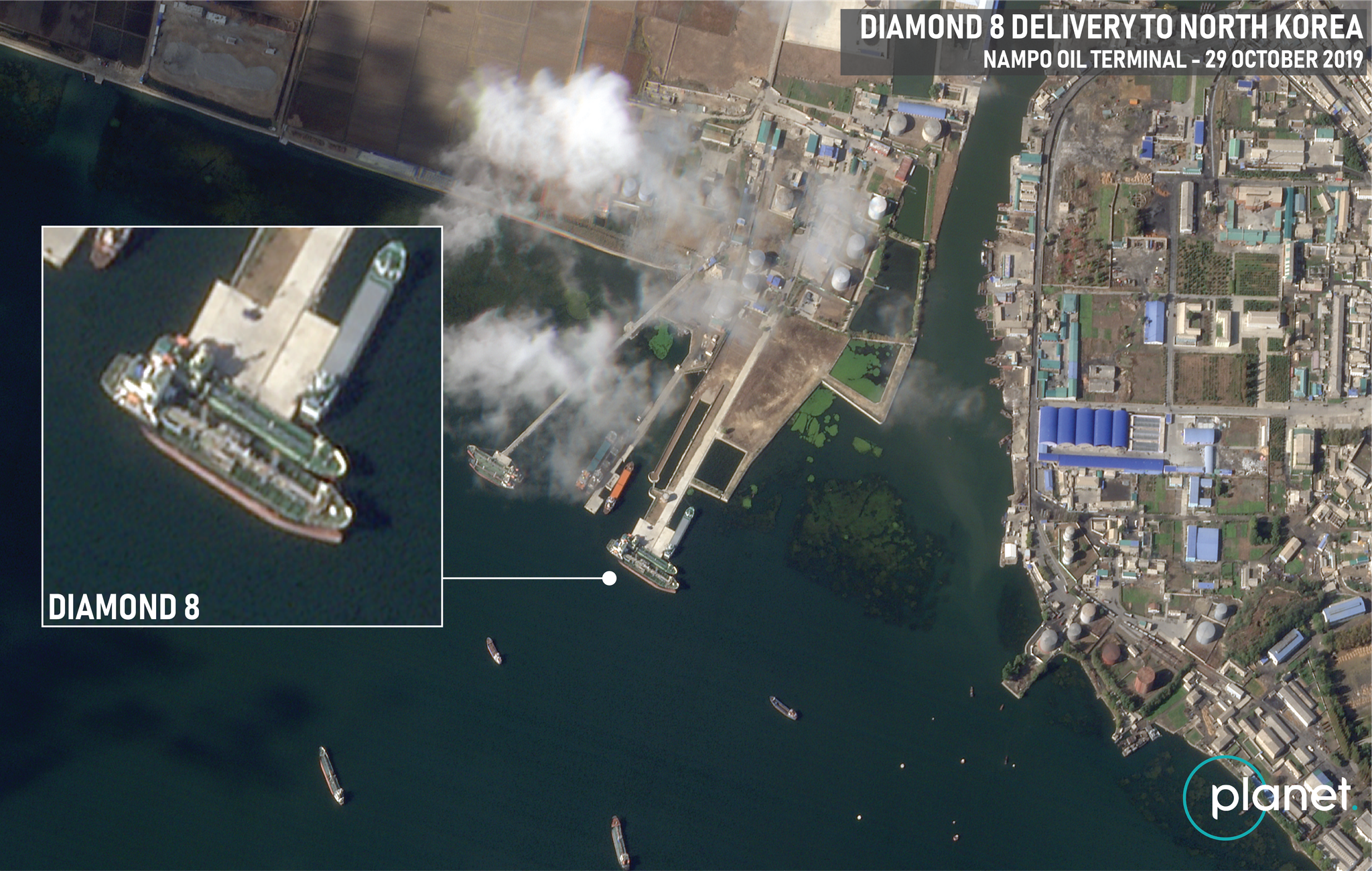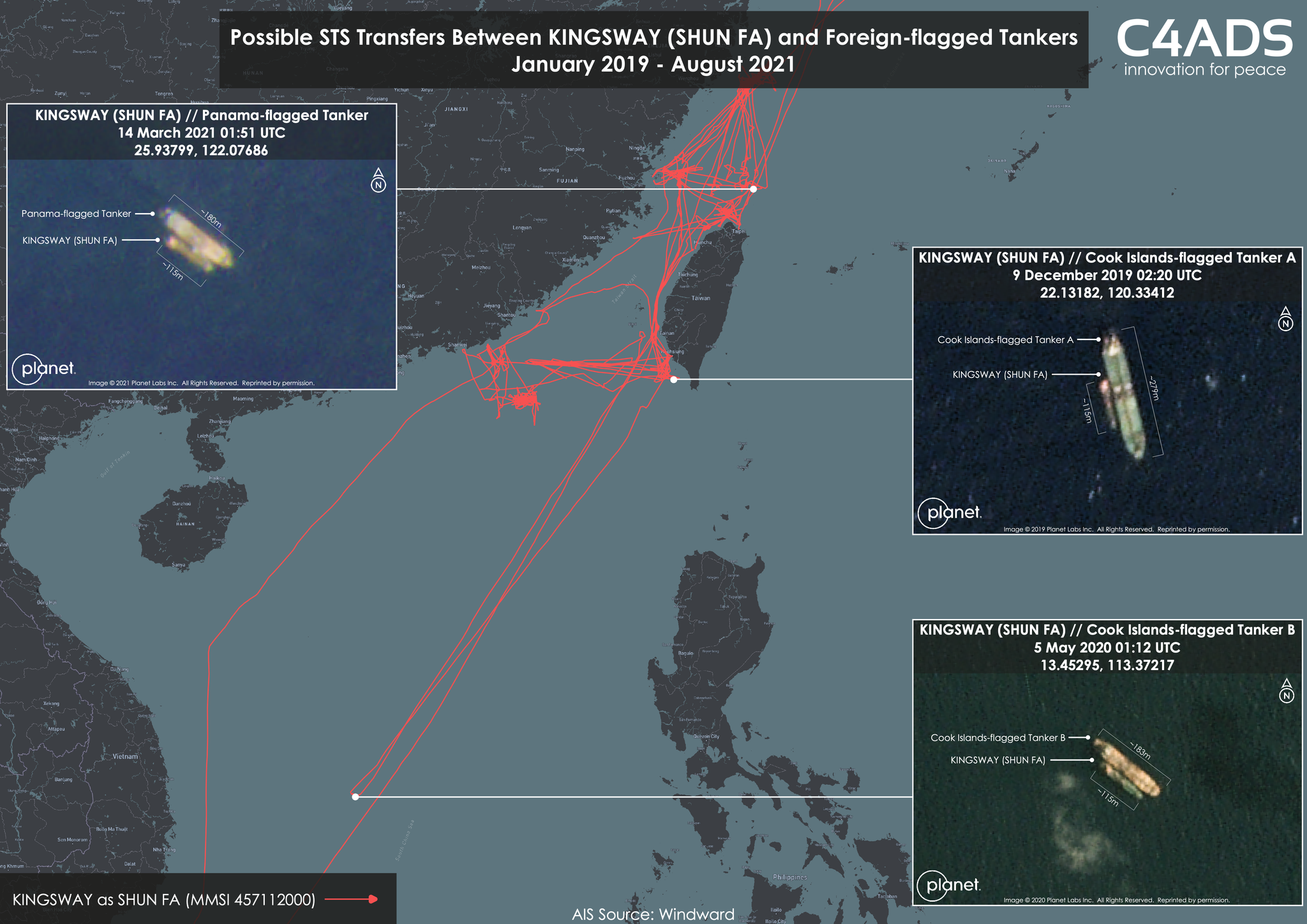Planet’s Data Used to Reveal Illicit Shipping Networks Delivering Fuel to North Korea in Violation of UN Sanctions

SkySat imagery of two ships undergoing identity laundering operation in Keelung, Taiwan © 2018, Planet Labs Inc. All Rights Reserved.
StoriesAt Planet, we believe that making information accessible and transparent leads to greater global security and stronger political accountability. Thanks to invaluable partnerships, our satellite data is actively being used to shine a light on covert operations and illicit supply chain processes around the world. The Center for Advanced Defense Studies, otherwise known as C4ADS, is a non-profit organization located in Washington, D.C. that provides data-driven analysis and evidence-based reporting on global conflict and transnational security issues. Through Planet, C4ADS uses satellite data to conduct in-depth investigative studies to monitor North Korea’s illicit procurement networks. Despite the international community’s efforts to sanction North Korea for its development of weapons of mass destruction, the country continues to receive illicit commodity supplies through adept evasion techniques. Notably, North Korea has obtained imported refined petroleum products needed to make weapons through secretive supply transfers at sea. By analyzing Planet’s satellite images in tandem with ship tracking data, C4ADS analysts Lucas Kuo and Lauren Sung, in collaboration with analysts at RUSI (Royal United Services Institute), have revealed in an in-depth report critical information regarding where and how these covert operations are conducted. “We saw that there wasn't significant research into who was delivering fuel or any research into how this whole system functioned,” said Senior Analyst at C4ADS Lucas Kuo. “In order to procure fuel from the international market and deliver that to North Korea, it requires a sophisticated network and pattern abroad.” Through the use of Planet’s satellite tasking system, these analysts were able to uncover how North Korea engaged in an organized criminal network outside of their borders to obtain fuel in violation of international sanctions. A complex and convoluted shipping system revolving around the tanker “Diamond 8”, allowed for fuel to be passed from one ship to another eventually arrive in North Korean ports. [caption id="attachment_147362" align="aligncenter" width="6002"]



Ready to Get Started
Connect with a member of our Sales team. We'll help you find the right products and pricing for your needs.

